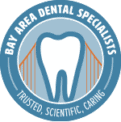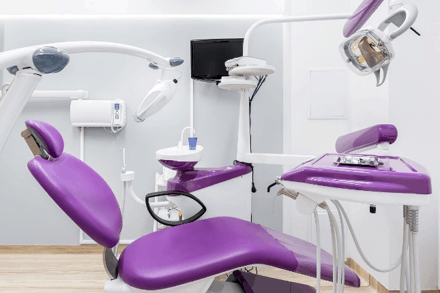
Do you experience fear or anxiety thinking about dental treatment? If so, you are not alone. Many people experience some degree of anxiety or fear about visiting the dentist, and for some, these feelings can be debilitating. But putting off dental care because of phobias or anxiety jeopardizes your oral health. It can cause small problems to progress into bigger problems that cause pain and require more extensive, involved treatment.
Luckily, gentle, compassionate dentists like Dr. Ashwini Bhave want to help you get the care you need in a relaxed and supportive environment. Solutions like sedation dentistry can put you into a very calm, pain-free state during treatment, allowing Dr. Bhave and our team to attend to your oral health needs.
Sedation dentistry techniques can be used for nearly every type of treatment, from a routine oral exam and cleaning to more involved treatments like full mouth reconstruction.
What Is Sedation Dentistry?
Sedation dentistry uses safe medications to put you into a relaxed and calm state of mind during your dental treatment. There are a range of medications that can be used, depending on the severity of your fear and anxiety. Some medications are inhaled, whereas others are taken in oral pill form or administered intravenously.
Nitrous Oxide
The lightest form of sedation is administered via nitrous oxide, sometimes called “laughing gas.” While seated in the dental exam chair, you breathe in nitrous oxide through a small mask placed over your nose to help you relax. The amount of nitrous oxide can be adjusted at any time. As soon as you remove the mask, the effects of the laughing gas wear off, so you are able to drive yourself home from treatment.
Conscious Sedation
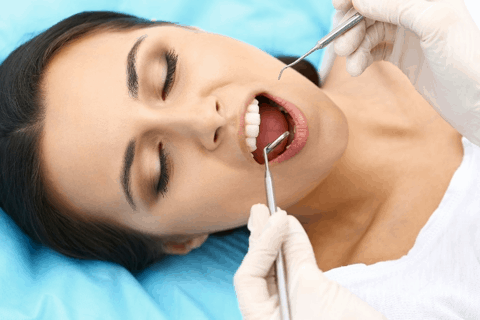
Conscious sedation involves taking a pill (such as Halcion or Valium) about an hour before your dental treatment. The medication puts you into a deeply relaxed and drowsy state, and you do not feel anything during your dental treatment. You might even fall asleep during your treatment. Some medications have amnesic properties, so you will not remember anything from your treatment.
A companion will need to drive you to and from your appointment, as it takes longer for the effects of oral sedation medication to wear off.
IV Sedation
Intravenous sedation administers sedative medication through a vein in your hand or arm. The medication makes you very relaxed and less aware of what happens during your appointment. The level of sedation can be adjusted at any time during treatment, and your vitals are continuously monitored.
Intravenous medications have a more powerful amnesic effect, so you will not be able to remember anything after the appointment. It can take some time for the effects of the medication to wear off, so you will not be able to drive yourself home from our office.
FAQs
What are the benefits of sedation dentistry?
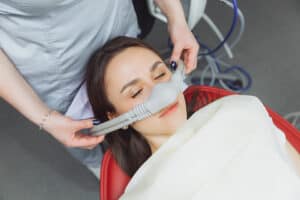
Some sedation methods, such as IV sedation and conscious sedation, have amnesic effects. Patients who choose sedation with oral or IV medication may not remember anything about their appointment or treatment. Sedation dentistry allows Dr. Bhave to work faster and more efficiently without taking breaks to manage anxiety or pain. You can enjoy a healthier mouth with little to no memory of the quick procedure.
Am I a candidate for sedation dentistry?
People who need extensive dental work or have a low pain threshold can benefit from sedation dentistry. Sedatives are also effective for those with a strong gag reflex, highly sensitive teeth, fear of the dentist (odontophobia), or difficulty sitting still. If going to the dentist makes you anxious or dental work is painful, discuss your sedation options with Dr. Bhave.
Sedation dentistry may not be a good fit for people with a high BMI or high blood pressure, pregnant or nursing women, and those with allergies to certain medications. Obstructive sleep apnea patients should talk with their family doctor and dentist before pursuing sedation dentistry.
What can I expect after sedation dentistry?

Our dentist recommends that patients who have IV or conscious sedation avoid driving, cooking, or working until the sedative effects are gone. Some patients may feel tired and nap, while others are alert after sedation with medication. A headache or nausea may happen after sedation for some patients.
How long will I be sedated?
The length of sedation also depends on the type of sedative. Nitrous oxide leaves your system quickly, wearing off within a few minutes, and IV and conscious sedation take longer to fade away. Dr. Bhave will adjust the sedative dose to ensure it wears off when the treatment is over, but patients will need to avoid driving and strenuous activities until the effects are gone.
Will I feel any pain during sedation dentistry?
One of the benefits of sedation dentistry is pain relief. Patients feel little to no pain during their dental procedure when using nitrous oxide, conscious sedation, or IV sedation. You can expect to feel comfortable and relaxed throughout the appointment whether or not you are awake.
What causes dental anxiety?
Dental anxiety often stems from a negative dental experience as a child. The dentist’s office comes with various sounds and sights that may scare small children, and the poking and prodding involved in dental exams can be uncomfortable, especially if the dentist is not gentle or welcoming. Dental anxiety could be a secondary issue due to a fear of needles, as dental tools and procedures can provoke similar concerns. Dr. Bhave works to provide a calm, welcoming environment for patients to help them feel comfortable during dental appointments with or without sedation.
Overcome Your Dental Phobia & Get Sedation Dentistry
The key to managing dental phobia or dental anxiety is to be open and honest with Dr. Bhave. Once she understands your feelings, she can work with you to find the best sedation method to make you more comfortable and relaxed during treatment. Dr. Bhave can also suggest other strategies to help you cope with your feelings of anxiety — such as establishing a signal to let her know if you want her to stop treatment, or having a thorough discussion of what happens at every step of treatment.
To learn more about how sedation dentistry can help you overcome dental phobia or anxiety and get the care you need, please contact our practice today.
